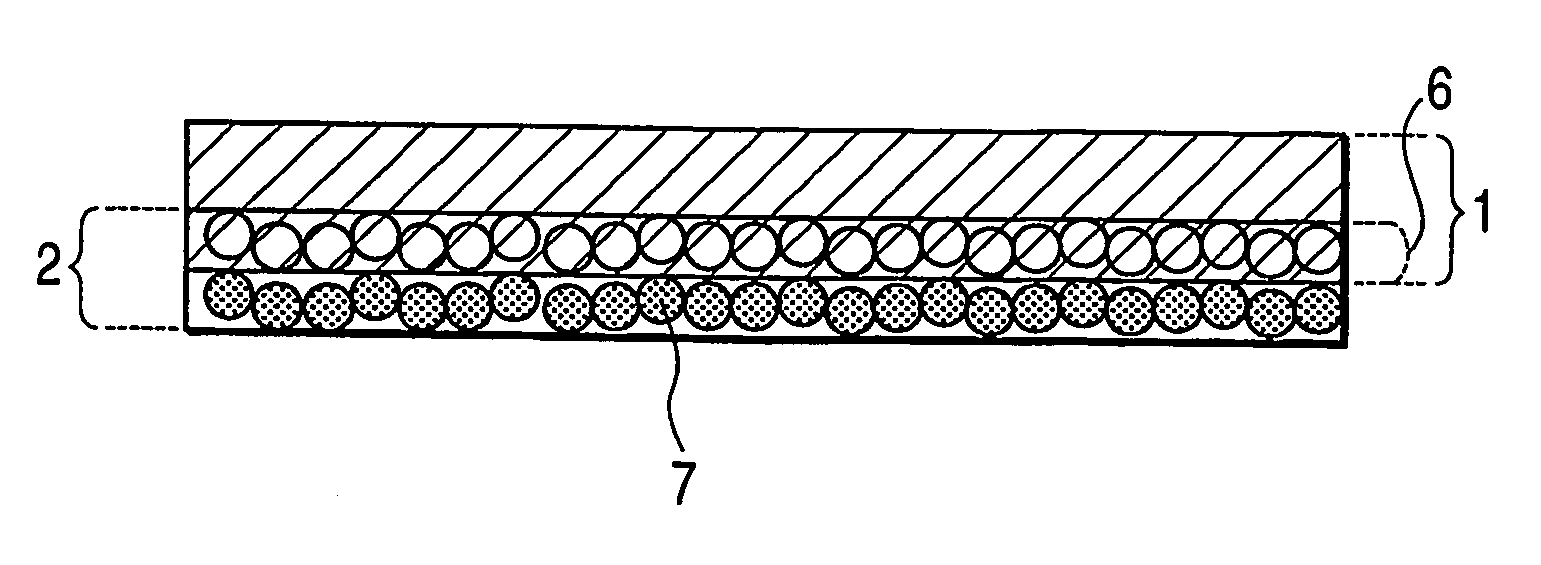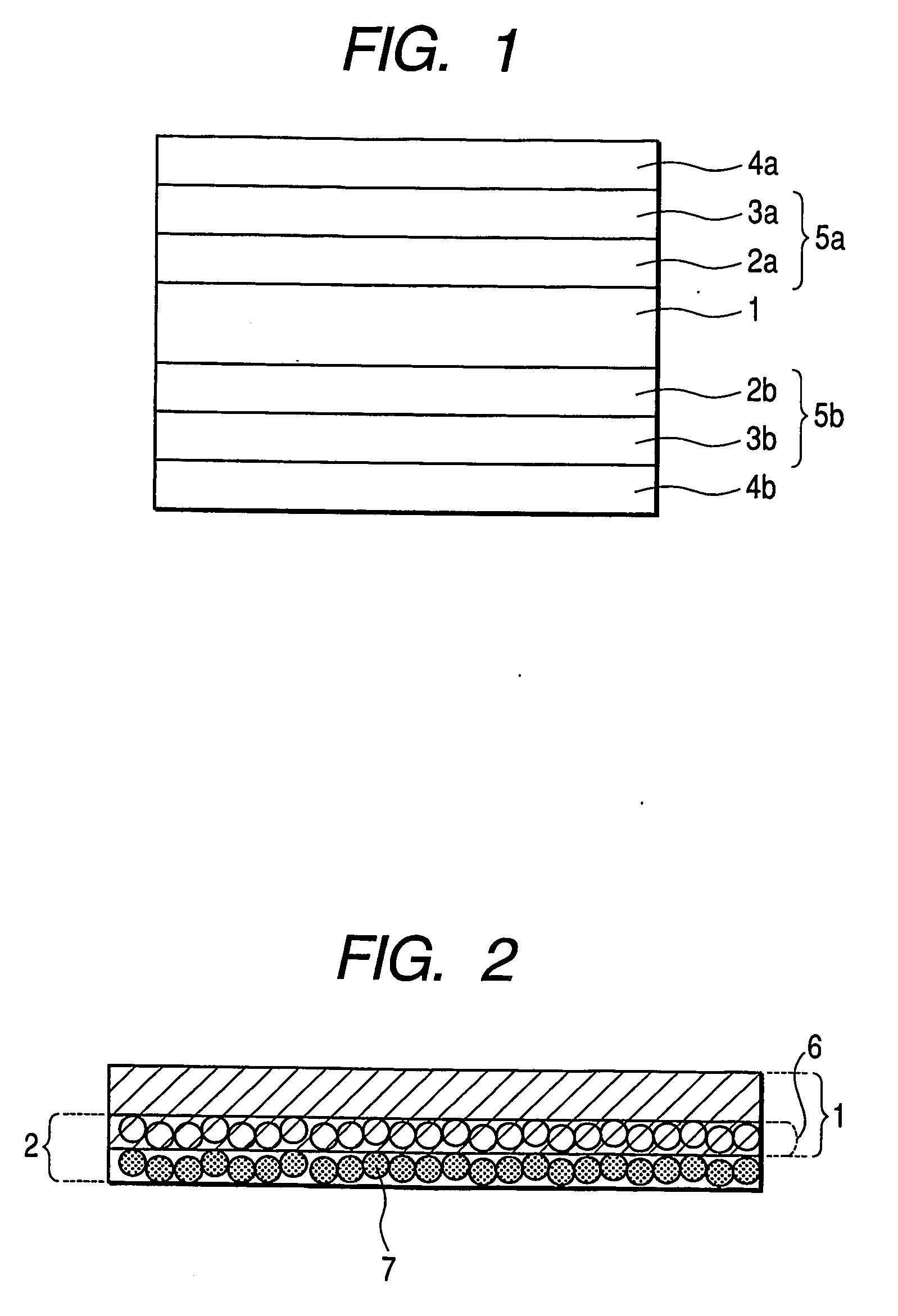Membrane electrode assembly, production method for the same, and proton-exchange membrane fuel cell
a proton-exchange membrane and fuel cell technology, applied in the direction of cell components, final product manufacturing, sustainable manufacturing/processing, etc., can solve the problems of fuel cell resistance increasing, insufficient three-dimensional three-phase interface, insufficient bonding of membrane electrode assembly produced according to the conventional production method, etc., to reduce internal resistance and increase reaction area
- Summary
- Abstract
- Description
- Claims
- Application Information
AI Technical Summary
Benefits of technology
Problems solved by technology
Method used
Image
Examples
example 1
[0075] Hereinafter, the present invention will be described by way of Examples and Comparative Examples, but the present invention is not limited thereto.
[0076] (Production of Electrode Catalyst Layer)
[0077] Carbon paper (TGP-H-30, available from Toray Industries, Ltd.) having a thickness of 0.1 mm and subjected to water repellency treatment was used as a diffusion layer. A paste prepared by sufficiently mixing 1 g of carbon carrying a 60 wt. % Pt—Ru catalyst (Pt:Ru=1:1, atomic ratio) (available from Tanaka Kikinzoku Kogyo K.K.) and 5 g of a 5 wt. % Nafion solution (available from Sigma-Aldrich Co.) was used as an electrode catalyst layer of an anode side (negative electrode). Carbon paper was coated with the catalyst paste to a predetermined thickness using a bar coater, and then was dried under a reduced pressure at room temperature.
[0078] Carbon paper subjected to water repellency treatment was also used as a diffusion layer of a cathode side (positive electrode). A paste prep...
PUM
| Property | Measurement | Unit |
|---|---|---|
| thickness | aaaaa | aaaaa |
| particle size | aaaaa | aaaaa |
| particle size | aaaaa | aaaaa |
Abstract
Description
Claims
Application Information
 Login to View More
Login to View More - R&D
- Intellectual Property
- Life Sciences
- Materials
- Tech Scout
- Unparalleled Data Quality
- Higher Quality Content
- 60% Fewer Hallucinations
Browse by: Latest US Patents, China's latest patents, Technical Efficacy Thesaurus, Application Domain, Technology Topic, Popular Technical Reports.
© 2025 PatSnap. All rights reserved.Legal|Privacy policy|Modern Slavery Act Transparency Statement|Sitemap|About US| Contact US: help@patsnap.com


